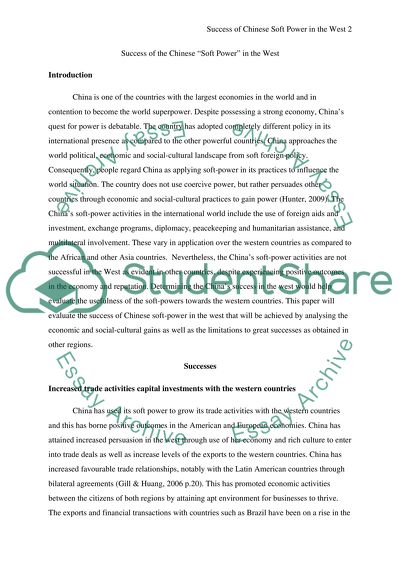Cite this document
(“How successful is chinese "soft power" in the west Essay”, n.d.)
Retrieved from https://studentshare.org/social-science/1689675-how-successful-is-chinese-quotsoft-powerquot-in-the-west
Retrieved from https://studentshare.org/social-science/1689675-how-successful-is-chinese-quotsoft-powerquot-in-the-west
(How Successful Is Chinese "soft power" In the West Essay)
https://studentshare.org/social-science/1689675-how-successful-is-chinese-quotsoft-powerquot-in-the-west.
https://studentshare.org/social-science/1689675-how-successful-is-chinese-quotsoft-powerquot-in-the-west.
“How Successful Is Chinese "soft power" In the West Essay”, n.d. https://studentshare.org/social-science/1689675-how-successful-is-chinese-quotsoft-powerquot-in-the-west.


